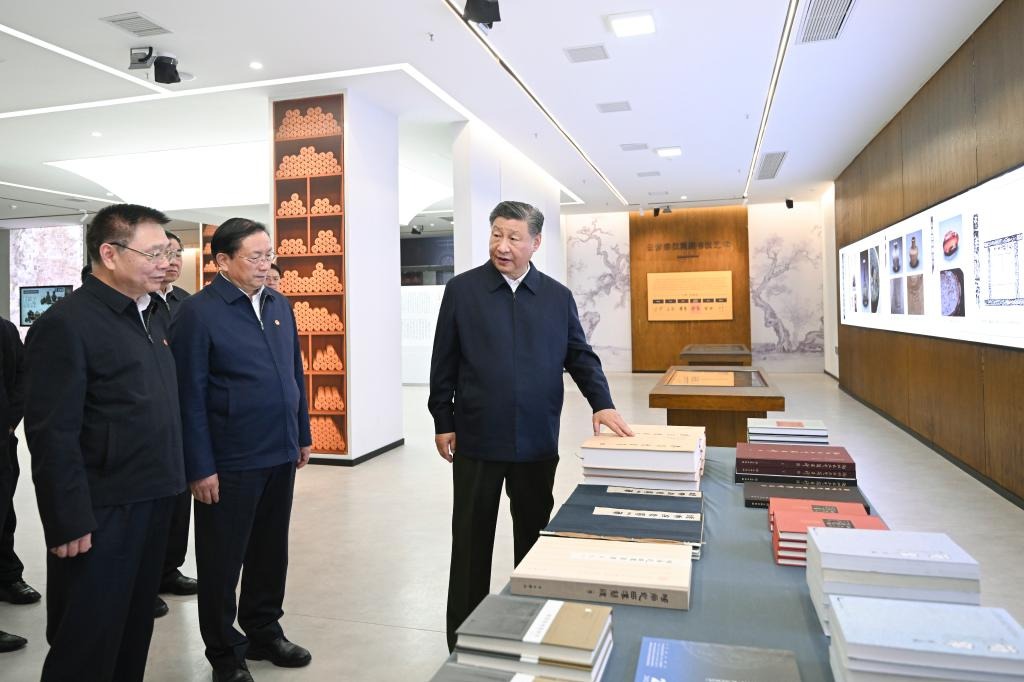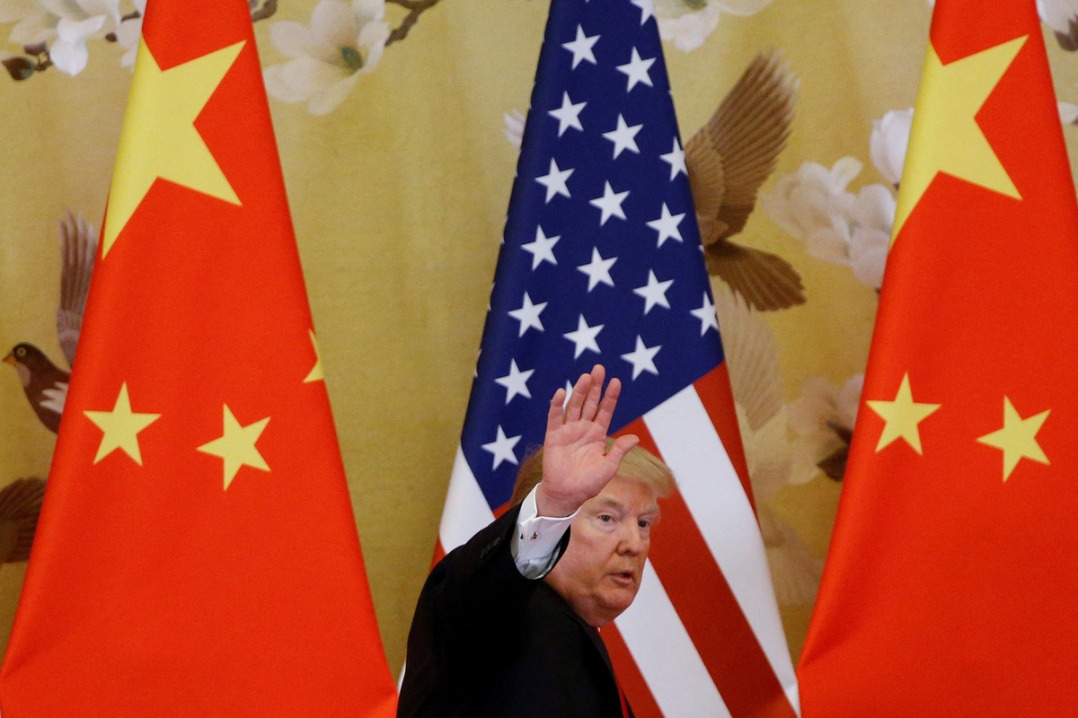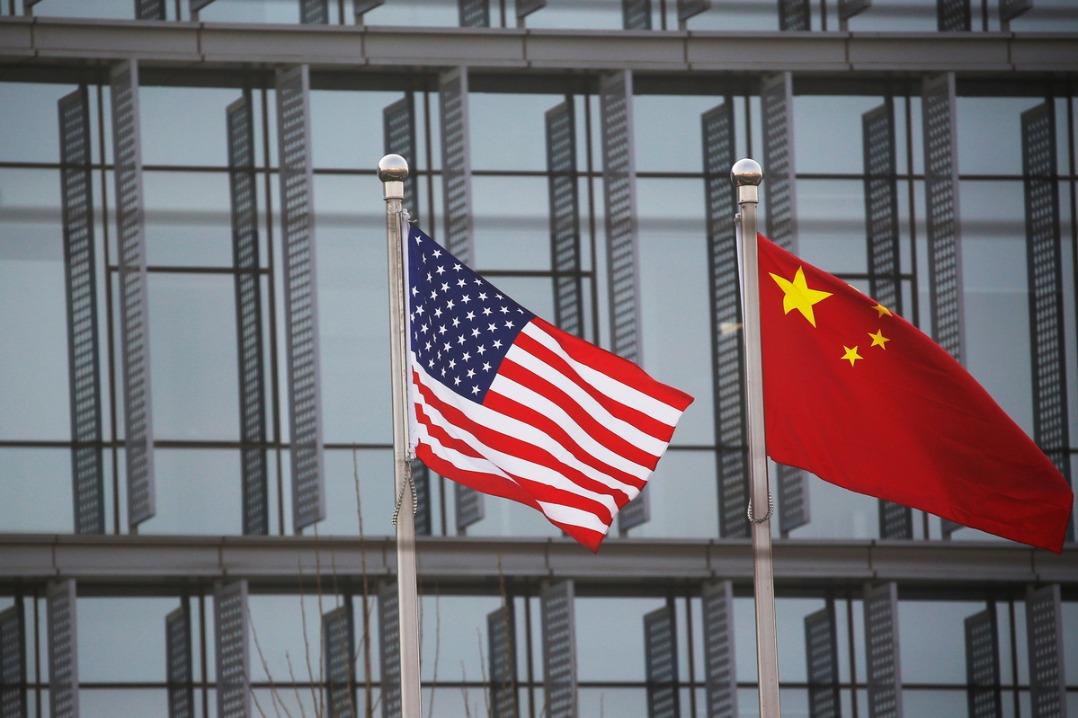Logical progression
Over the past decade, practical cooperation between China and Arab states has been enhanced and accelerated, yielding fruitful results


Over the past decade, practical cooperation between China and Arab states has been enhanced and accelerated, yielding fruitful results
China and Arab states enjoy a long history of friendly exchanges. Although separated by vast distances, the two ancient civilizations have been connected through the land Silk Road and the maritime Spice Route for thousands of years. Trading goods and exchanging knowledge, the two sides have been significant participants and contributors to the splendid history of the Silk Road.
When China proposed the Belt and Road Initiative a decade ago, Arab states were among the first to respond. The deep historical ties and evident economic complementarity have brought China and the Arab world together as partners in building the Belt and Road.
First, China and Arab states have kept close policy interaction. The past 10 years have borne witness to frequent high-level exchanges, higher level of political dialogues, as well as the vital role of head-of-state diplomacy. President Xi Jinping has visited Arab states multiple times, delivering keynote speeches at the headquarters of the Arab League and attending the China-Arab States Cooperation Forum ministerial meetings.
A historic milestone in China-Arab states ties, the inaugural China-Arab States Summit advanced the strategic alignment for jointly constructing the Belt and Road and marked the start of a new phase featuring comprehensive and deepened strategic cooperation. As of now, 21 Arab states and the Arab League have signed cooperation documents with China under the framework of the Belt and Road Initiative.
Second, the bilateral trade volume has doubled. China is the top trading partner for the Arab states. In 2022, the total import and export volume between China and the 22 Arab states exceeded $431.4 billion, twice as much as five years ago. Arab states are the world's largest oil and gas producers. Nearly half of China's imported oil comes from Arab states.
Third, bilateral investment has accelerated growth. From 2004 to 2020, China's direct investment in Arab states has increased from $18 million to $2.83 billion; cumulative investment has grown from $76 million to $21.29 billion. Chinese investment in Arab states has become increasingly diversified. In addition to traditional oil, gas and petrochemical industries, Chinese enterprises are now investing in emerging sectors such as new energy, aerospace, high-end manufacturing, telecommunications and the internet, as well as the digital economy.
Following the China-Arab States Summit, Arab states enjoyed a surge of interest to invest in China. Industrial enterprises such as Saudi Aramco and sovereign wealth funds such as Abu Dhabi Investment Authority from the United Arab Emirates have accelerated expansion in China. Saudi Aramco launched new petrochemical projects in Liaoning and Fujian provinces, and acquired equity in Zhejiang Rongsheng Petrochemical. China's capital market has become a new investment target for Arab sovereign wealth funds. Entities such as Abu Dhabi Investment Authority and Kuwait Investment Authority have made into the top 10 shareholders in over 40 Chinese listed companies.
Fourth, infrastructure cooperation has grown rapidly. Chinese companies have actively participated in infrastructure projects in various sectors in Arab states, including transportation, public facilities, clean energy, information communication and industrial facilities. They have undertaken major projects such as the Mecca Metro in Saudi Arabia, the East-West Highway in Algeria, the Central Business District of Egypt's new administrative capital, the main stadium for the Qatar World Cup and the Benban Solar Park in Egypt. Chinese companies are also involved in large-scale infrastructure projects such as Saudi Arabia's future city of Neom, contributing to the development and people's livelihoods in Arab states.
Moving forward, both sides should focus on the following areas to deepen and substantiate their Belt and Road cooperation.
First, enhance policy communication and strategic cooperation. China and Arab states play crucial roles in upholding multilateralism and building a multipolar world. Both parties should continue to strengthen policy communication and coordination under China-Arab cooperation mechanisms, and take part in global governance by collaborating more closely in international organizations and multilateral forums such as the United Nations and the G20.
Future efforts should be focused on creating cooperation mechanisms to facilitate the building of the Belt and Road. Both sides should work toward the completion of negotiations for the China-Gulf Cooperation Council Free Trade Area and initiate negotiations with other Arab states for free trade agreements at an appropriate time. Mechanisms for trade facilitation, investment encouragement and protection should be established.
Second, develop a new pattern of energy cooperation. Energy cooperation is and will remain the cornerstone of China-Arab economic and trade collaboration for a long time. Under the framework of "oil and gas plus", China and Arab states should not only expand oil and gas trade, but also work together across the entire industry chain, from the exploration, extraction and storage of petroleum, to the innovative utilization of hydrocarbon energy and new energy.
Third, explore new cooperation opportunities. Arab states are promoting advanced technologies such as the digital economy, cloud computing, artificial intelligence and aerospace, where China has significant advantages. As a manufacturing powerhouse, China can support Arab states to develop green and intelligent manufacturing through international capacity cooperation, driving the integration of industry and value chains. In the financial realm, both sides can progressively expand the scale of currency swaps, develop cross-border settlement in the renminbi, and actively explore oil and petrochemical product trade settlement in the renminbi.
The rapid development of cooperation between China and Arab states to build the Belt and Road has its inherent logic and motivation. The Arab states' economic transformation strategies are aligned with the Belt and Road Initiative. Empowered by the efforts to co-build the Belt and Road, China and Arab states have found new complementarities at a higher starting point and will lay the foundation for deepening the Belt and Road Initiative in the Arab world.
The author is a professor of the Institute of Middle East Studies at Shanghai International Studies University. The author contributed this article to China Watch, a think tank powered by China Daily. The views do not necessarily reflect those of China Daily.
Contact the editor at editor@chinawatch.cn.


































